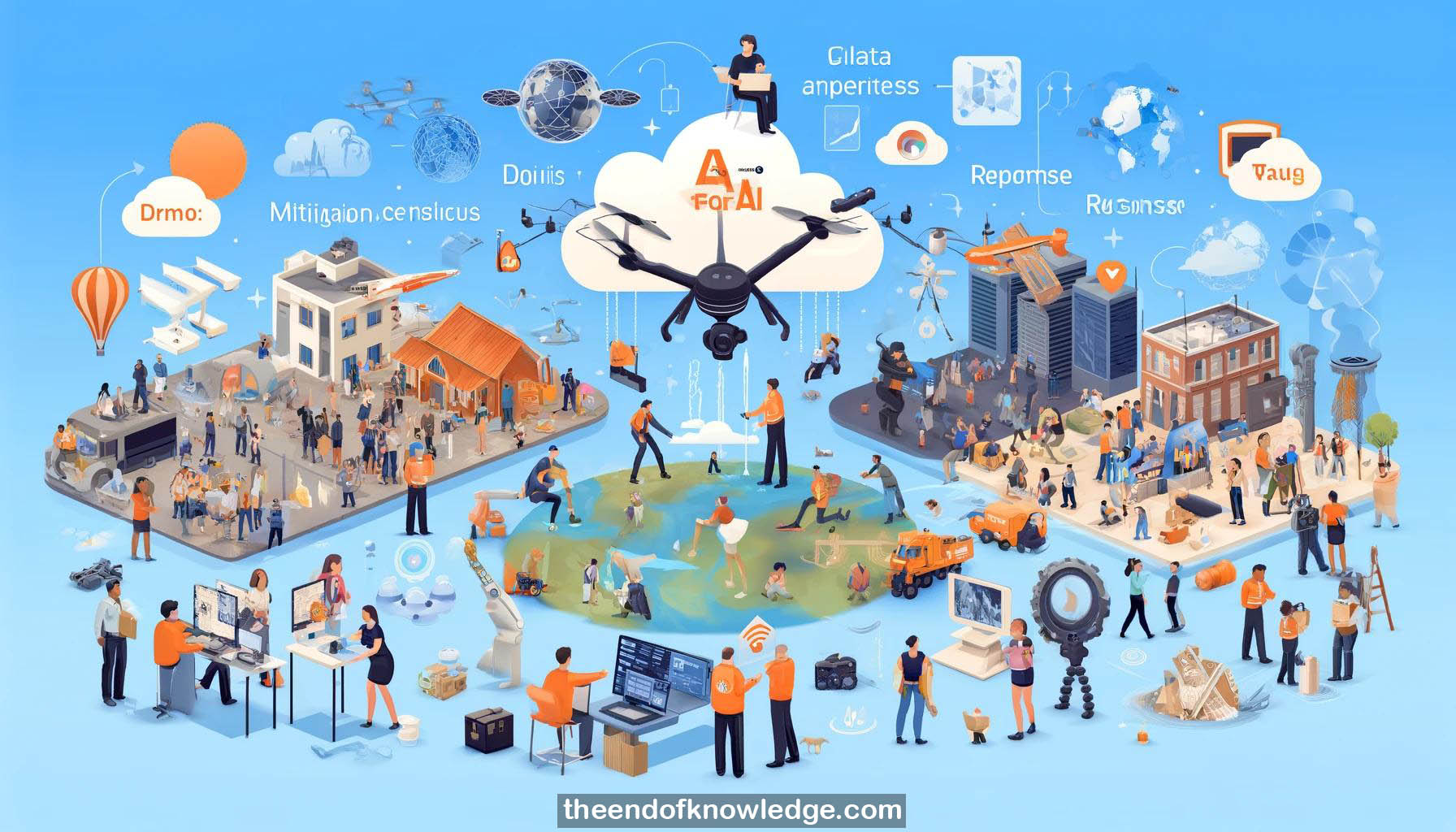 >
>
Concept Graph & Resume using Claude 3 Opus | Chat GPT4o | Llama 3:
Resume:
1.- Global Summit Introduction: The AI for Good Global Summit, organized by ITU, XPrize, and other partners, aims to apply AI for sustainable development goals globally.
2.- Disaster Impact: Natural and man-made disasters annually affect millions, with economic damages in 2019 estimated at $232 billion, necessitating comprehensive disaster management.
3.- Role of ICT in Disaster Management: Information and communication technologies (ICT) enhance disaster preparedness and response, with ITU leading standards and best practices sharing.
4.- Hurricane Dorian Case Study: AWS and help.ngo used AWS Snowball Edge devices during Hurricane Dorian for rapid aerial imagery processing to aid disaster response in the Bahamas.
5.- AWS Snowball Edge: A portable, ruggedized device that brings cloud capabilities to the field, supporting data storage, processing, and analytics in disconnected environments.
6.- AWS Disaster Response Program: AWS assists NGOs, nonprofits, and governments in disaster resilience, leveraging technology and expert volunteers to address infrastructure and technology challenges.
7.- Volunteer Deployment: AWS deploys trained technical volunteers for disaster response, offering support in areas like networking, situational awareness, and edge computing.
8.- COVID-19 Data and Analytics: AWS supports organizations in aggregating, analyzing, and visualizing data using data lakes and machine learning to enhance decision-making during crises.
9.- Machine Learning and AI in Disasters: AWS applies machine learning to predict and manage disaster impacts, enabling organizations to respond faster and more effectively.
10.- Business Continuity During Pandemics: AWS helped businesses and schools scale infrastructure for remote work and learning, ensuring continuity during COVID-19 lockdowns.
11.- Health Sector Support: AWS facilitated telehealth and remote patient monitoring, alleviating pressure on hospitals and providing critical healthcare services during the pandemic.
12.- Amazon Connect: AWS’s omnichannel cloud contact center solution, Amazon Connect, was deployed rapidly to manage increased call volumes during disasters like Hurricane Harvey.
13.- Triage Chatbots: Amazon Lex-powered chatbots were used by health organizations to handle COVID-19 inquiries, providing symptom checks and information, reducing strain on healthcare providers.
14.- WHO Academy App: AWS supported the WHO Academy app, providing healthcare workers globally with COVID-19 training and resources through scalable cloud infrastructure.
15.- Babylon Health Integration: Babylon Health used AWS to offer a comprehensive COVID-19 care assistant, integrating symptom checking, telemedicine, and consultation escalation, easing NHS workload.
16.- Dr. Anywhere Telehealth: Dr. Anywhere’s telehealth platform scaled on AWS to meet increased demand, providing virtual consultations, medication delivery, and access to healthcare records.
17.- Accelerating Research: AWS enabled faster bioinformatics research by providing scalable compute and storage for machine learning model development, crucial for COVID-19 diagnostics.
18.- Diagnostic Development Initiative: AWS launched an initiative supporting researchers in developing reliable COVID-19 diagnostics, such as UBC’s AI model for diagnosing COVID-19 via CT scans.
19.- Preparedness is Key: Emphasizing the importance of preparedness, AWS advises organizations to inventory resources and plan for remote access to critical data and applications.
20.- Use of Open Data: AWS’s open data program offers geospatial and population data for disaster management, aiding organizations in predictive analytics and response planning.
21.- Sensor Data Integration: AWS Snowball Edge devices integrate various sensor data to provide situational awareness, crucial in disconnected environments during disasters.
22.- Machine Learning Applications: AWS offers managed machine learning services, like Amazon Comprehend and Forecast, enabling organizations to utilize AI without deep expertise.
23.- Call Center Efficiency: AWS solutions, like Amazon Connect and Lex, streamline call center operations, enabling rapid setup and handling increased demand during crises.
24.- Community Outreach: AWS supports chatbot and symptom checker implementations, enhancing community outreach and information dissemination during health crises.
25.- Collaboration with Governments: AWS collaborates with governments to provide scalable infrastructure for critical services, such as online education and healthcare during COVID-19.
26.- Enhancing Research Collaboration: Tools like AWS Service Workbench facilitate secure, cloud-based research collaboration, accelerating scientific discoveries in fields like genomics.
27.- Data Security: AWS ensures data security through encryption and access controls, particularly important for sensitive information collected during disaster response.
28.- Future Preparedness: AWS encourages proactive planning for uncertain future scenarios, integrating climate change and sustainability considerations into disaster preparedness.
29.- Humanitarian Partnerships: AWS partners with humanitarian organizations to deploy technology solutions, enhancing disaster response capabilities globally.
30.- AI for Health Focus Group: ITU’s AI for Health focus group benchmarks AI solutions against medical standards, inviting collaboration to improve AI-driven health diagnostics.
Knowledge Vault built byDavid Vivancos 2024